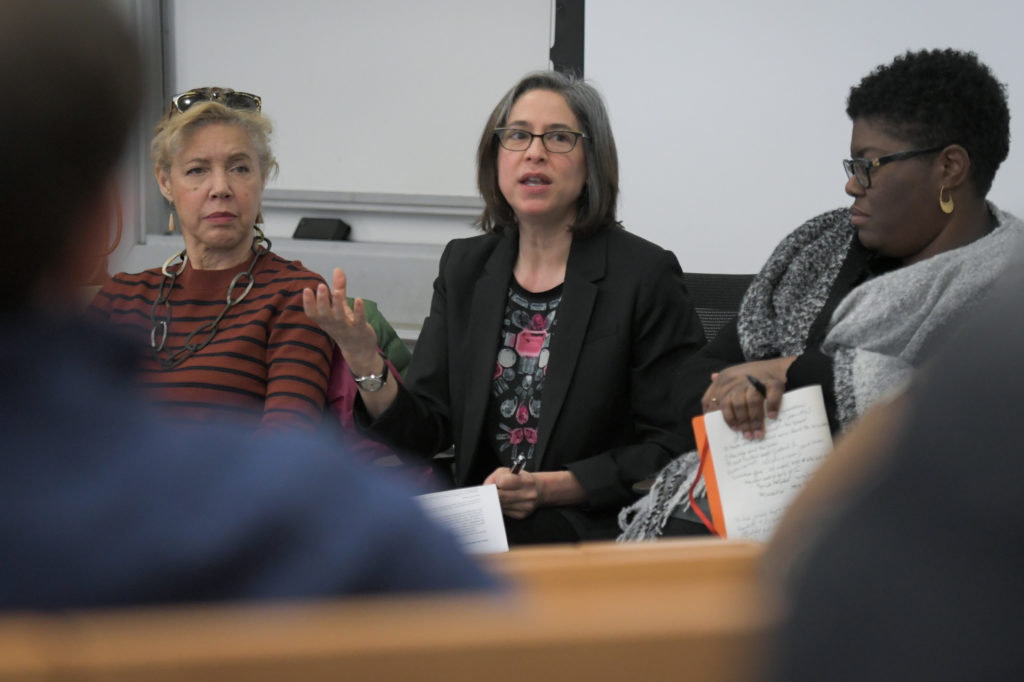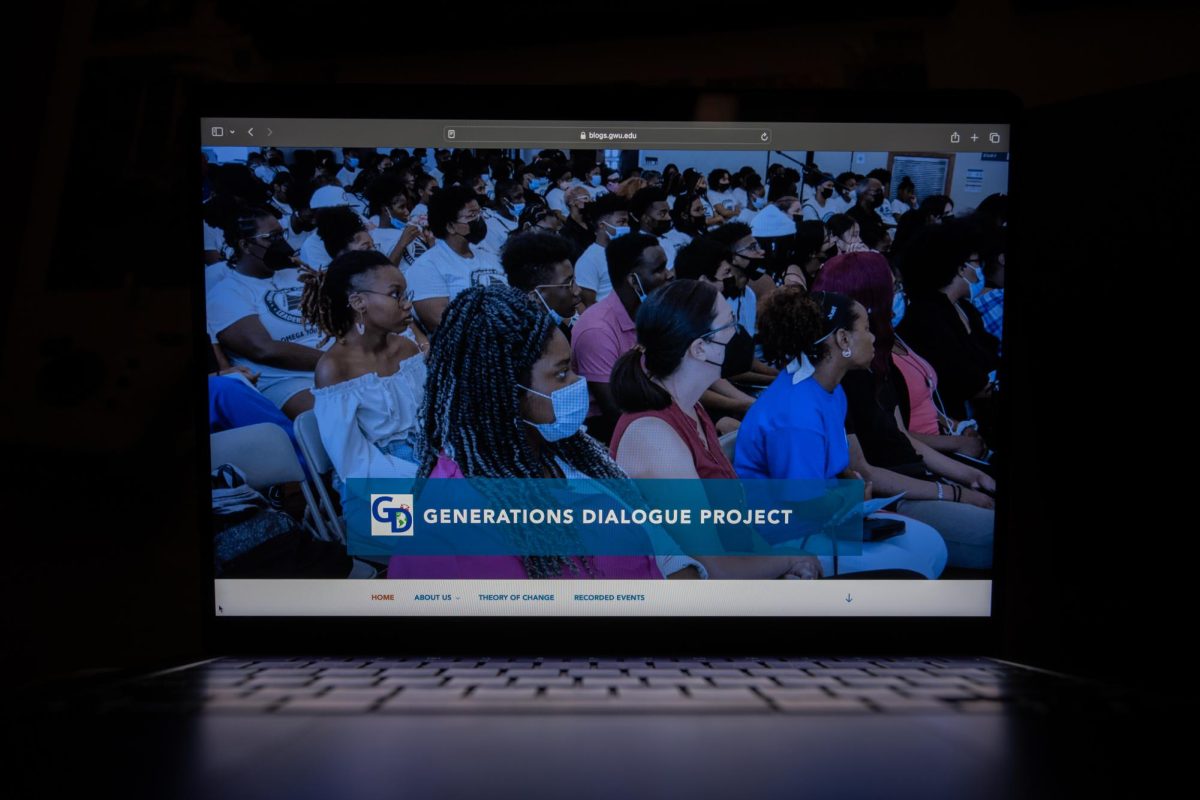The virtual Humanities Center has provided professors and students opportunities to collaborate on interdisciplinary humanities research since its founding last fall.
Faculty involved with the center said the virtual space allowed professors to foster and advance their ongoing research projects in the humanities, like investigations into historical crises and upheavals, through University’s funding and student assistants. They said the center’s inaugural annual theme of “Culture in Crisis” was partly inspired by the pandemic and incorporates scholars’ work examining societies that have been “under pressure,” like those that have experienced plagues and political crises.
Jamie Cohen-Cole, the co-director of the center and a professor of American studies, said he and Lynn Westwater, the other co-director and a professor of Italian, created the center to “rectify missing components” of the University’s research profile, especially since all of GW’s market basket schools have humanities centers. Cohen-Cole said creating a center to connect humanities researchers at GW has been a decades-long conversation but a lack of funding prevented the formation of one until the past year.
“This is an idea which is neither new to GW nor new to universities generally,” Cohen-Cole said. “The effort was to fill a hole that GW has that other universities have well represented.”
Cohen-Cole said he and Westwater presented the idea for the center to the Office of the Vice President for Research last year after the office announced funding opportunities for faculty who were doing research related to the pandemic. He said they launched applications to select researchers to become involved once officials approved funding for the center last summer by following a procedure similar to other competitive applications that the OVPR uses.
Eleven humanities professors were selected as fellows and received $1,000 each in research funds, and a paid undergraduate research assistant who could help out for up to 60 hours per semester was also recruited. Cohen-Cole said the center’s fellows presented their work-in-progress projects to each other virtually throughout the past year by participating in biweekly virtual center gatherings and invited an outside speaker to present their insight on these humanities topics earlier this year.
“We want to have a kind of broad umbrella that a lot of people could participate in but also have an organizing approach, so that people who are working in one or another subfield of the humanities would have a common basis for a conversation,” Cohen-Cole said.
He said he hopes the center will increase its “footprint” among undergraduates next semester to include student fellows and more paid research assistants. Cohen-Cole said hiring research assistants is contingent upon the funding the center receives and would allow students to gain valuable research experience.
“We are committed to the idea that research could be something that could be done both by professors and also done by students,” he said.
Cohen-Cole said while informal face-to-face conversations have been limited, the center benefited from more virtual networking opportunities as part of the online environment.
Humanities research consisted of less than 1 percent of the University’s expenditures in 2019. University community members have expressed concerns that the University’s strategic plan, which has been made “obsolete” due to the pandemic, over-emphasized greater STEM research and overlooked GW’s strengths in humanities research.
Gayle Wald, a professor of American studies and member of the steering committee, said people often underestimate the “transformative” value humanities scholarship contributes to the production of critical thinking, like ideas about race, sexuality and gender. She said humanities scholars require much less funding than researchers in other academic fields because travel and access to archives make up the majority of expenses as opposed to experiment and lab costs.
“A $5,000 grant, which would barely buy a piece of equipment for a chemistry lab, goes a really long way in supporting someone who needs to visit archives,” Wald said.
Three professors with projects in the center said the virtual space allowed them to approach humanities research with an interdisciplinary angle by exchanging feedback with each other, and they could work with other humanities scholars outside of their specific fields of study through the virtual learning environment during the pandemic.
Trevor Jackson, an assistant professor of history and a Humanities Center fellow, said the grant to conduct research and hire a research assistant provided by the Center helped him complete the final chapter of his book “Capitalism and Impunity: Exceptions in Economic History.” He said his research assistant helped him sort through countless volumes of digital bank data archives during the pandemic, which he would not have been able to do on his own while teaching classes.
“I had to change tactics and use digitized material while teaching, and so that meant one person trying to go through 50 volumes of handwritten bank data would just be impossible,” he said. “So having a research assistant to help me with that was invaluable.”
Eric Schluessel, an assistant professor of history and a Humanities Center fellow, said his work at the Center helped advance his project on the experiences of Uyghurs, an ethnic group under persecution in China, by creating a portal designed to make manuscripts from their homeland accessible for research and study. He said humanities researchers often collaborate based on their research interests, but the center allowed him to learn from scholars in varying fields.
“This was an amazing opportunity for me as a first year member of the faculty to hear a real diversity of perspectives, relatively speaking,” Schluessel said.







